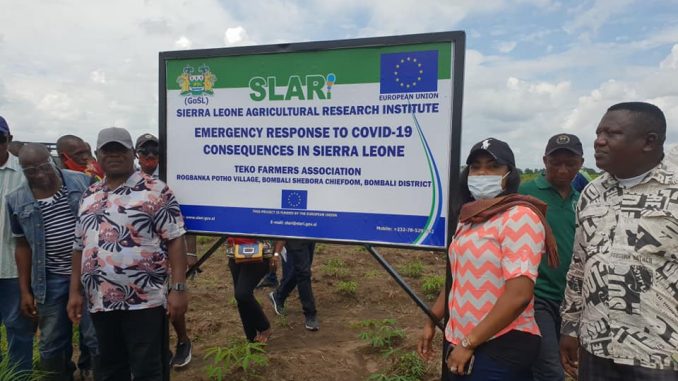
The Minister of Agriculture and Forestry together with technical team from the ministry have visited the Sierra Leone Agricultural Research Institute’s (SLARi) COVID emergency response farms project funded by the European Union to monitor, evaluate and determine progress of work in the farms.
As one of its numerous COVID interventions, the European Union allocated over 135,000 Euro to SLARi through the National Authorising Office (NAO) to help cushion the consequences of COVID-19 thereby targeting 1000 vulnerable farmers across seven selected districts in the country.
The project introduces a food production model that comprises of six classes of food nutrient crops like yellow flesh cassava, orange flesh sweet potato, rice, maize, corn and cowpea beans that were distributed to 10000 farmers across seven districts in Sierra Leone.
In Bombali district, SLARi targeted 105 farmers who are divided into three groups (Tecko Farmers Association, Tecko Kareneh Farmers, Pate Bana Marank Farmers) with a total land size of 33.6 hectares in Yeli Sanda, Rogbanka Potho and Mabanta villages in Gbanti and Bombali Shebora Chiefdoms.
Talking to the Minister and the technical team from the ministry about the EU funded farms, the EU funded Project Coordinator and Plant Breeder Research Scientist at SLARi Dr. Isata Kamanda said the food crops were carefully selected because of their food value. She said the food crops produce carbohydrate, vitamin, mineral and protein to enhance the food nutritional security of the targeted beneficiaries. She said for example, yellow flesh cassava helps to boost vitamin A efficiency, and orange flesh sweet potato produces pro vitamin A that helps develop the human brain, and also helpful to lactating mothers and children under five years.
Dr. Kamanda further said the project will provide the much-needed food support to maintain agricultural stability of farmers and support livelihoods, as well as enhancing their income and body nutrients needed to withstand the Coronavirus. She said some of the benefits from the COVID intervention project are the development of the farmer data base and to keep farmers and their families safe and healthy as SLARi rollout its real EU funded project for farmers.
Speaking to the farmers and SLARi field officials, the Minister of Agriculture and Forestry Denis K. Vandy expressed delight over the progress of work in the farms. He reminded the farmers that the funding for the project is coming from the European Union and they should ensure that the project achieve its purpose. He said he travelled to the farm sites to have a look at the project and have his personal assessment, and from what he has seen and stories heard from the various beneficiaries he is satisfied with the project.
Mr. Vandy encouraged SLARi to popularise the new yellow flesh cassava and orange flesh sweet potato crops to other parts of the country. He said they want to see an agricultural practice that will help the country pay it depts, boost the economy of the country and enhanced the living standard of farmers. He admonished farmers to take farming as a business enterprise, and should not use COVID emergency as an excuse not to farm because agriculture is life.
Speaking on behalf of beneficiaries in Bombali district, Mariama Mansaray Chairlady for “Tawop N’sobeh” farmers group expressed gratitude by thanking SLARi for implementing such project in the district to help improve their livelihoods and withstand the coronavirus that is currently ravaging lives globally.
Majority of the crops will be ready for harvest in October, November and December, except for cassava that has a two-year life growth period before it can be ready for harvest.
SLARi is also implementing a 2 million Euro grant awarded by the European Union in 2018 with a core mandate to enhance the tree crops sector (cacao, coffee and cashew), fruit trees and agro-forestry, diversifying vegetable and livestock, develop agricultural technologies in tree crops, horticultural crops and livestock under the boosting agriculture and food security (BAFS) project in Sierra Leone.
More information about the EU’s Support to SLARi can be found on the SLARi’s website: www.slari.org.sl/
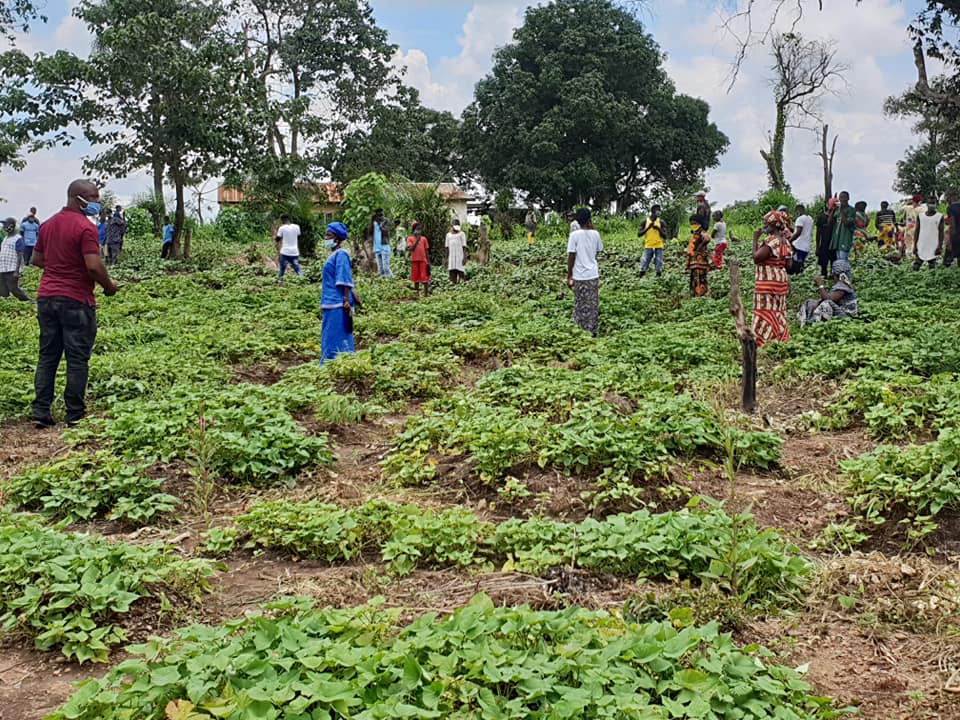
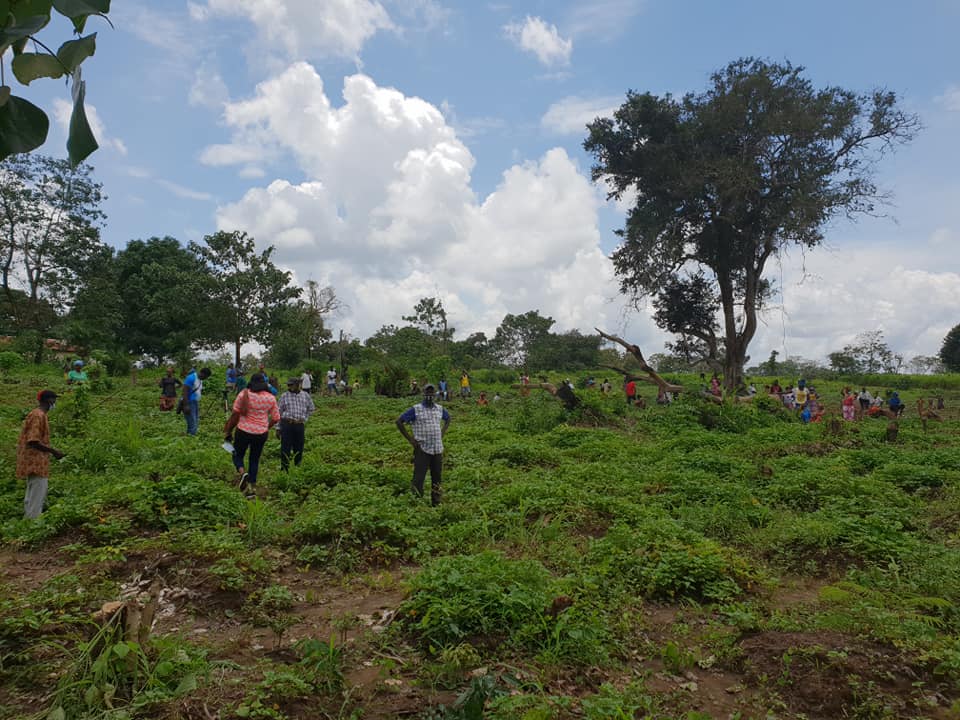
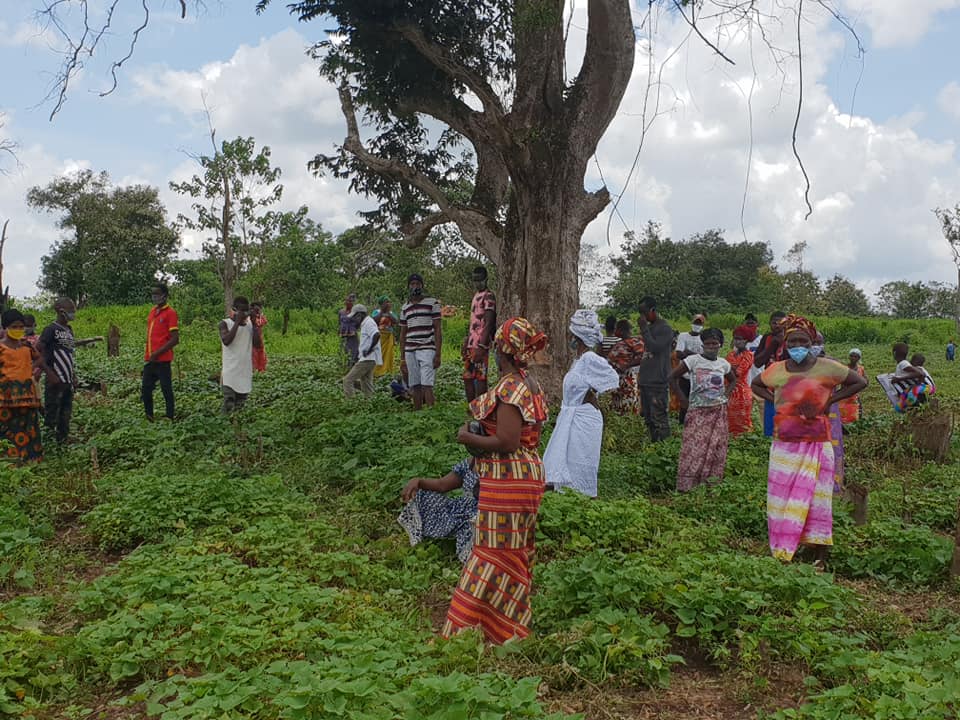
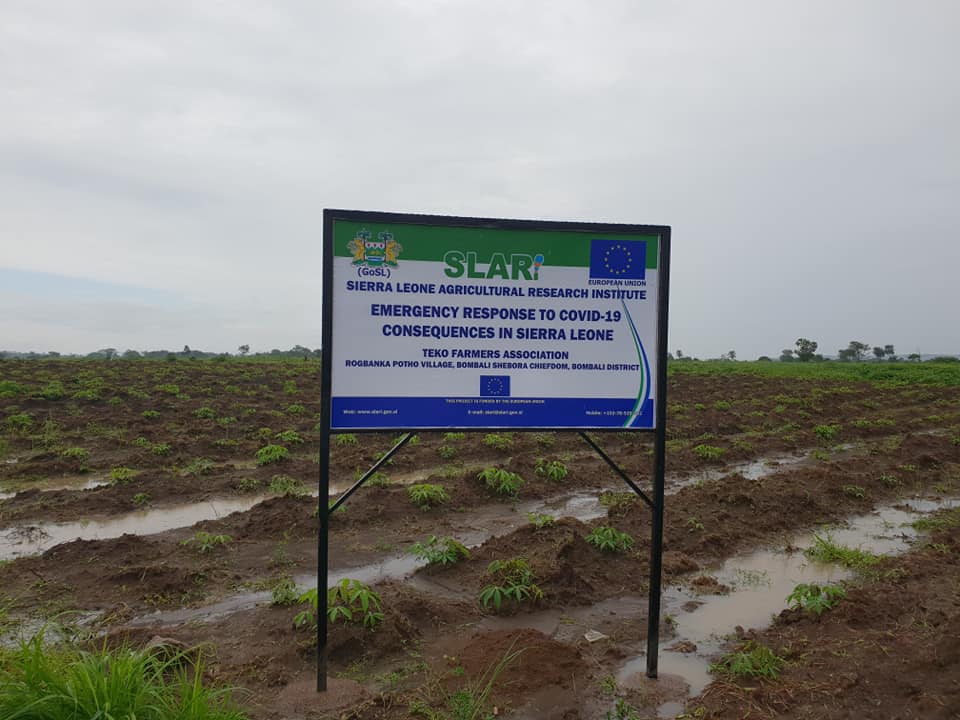

Leave a Reply